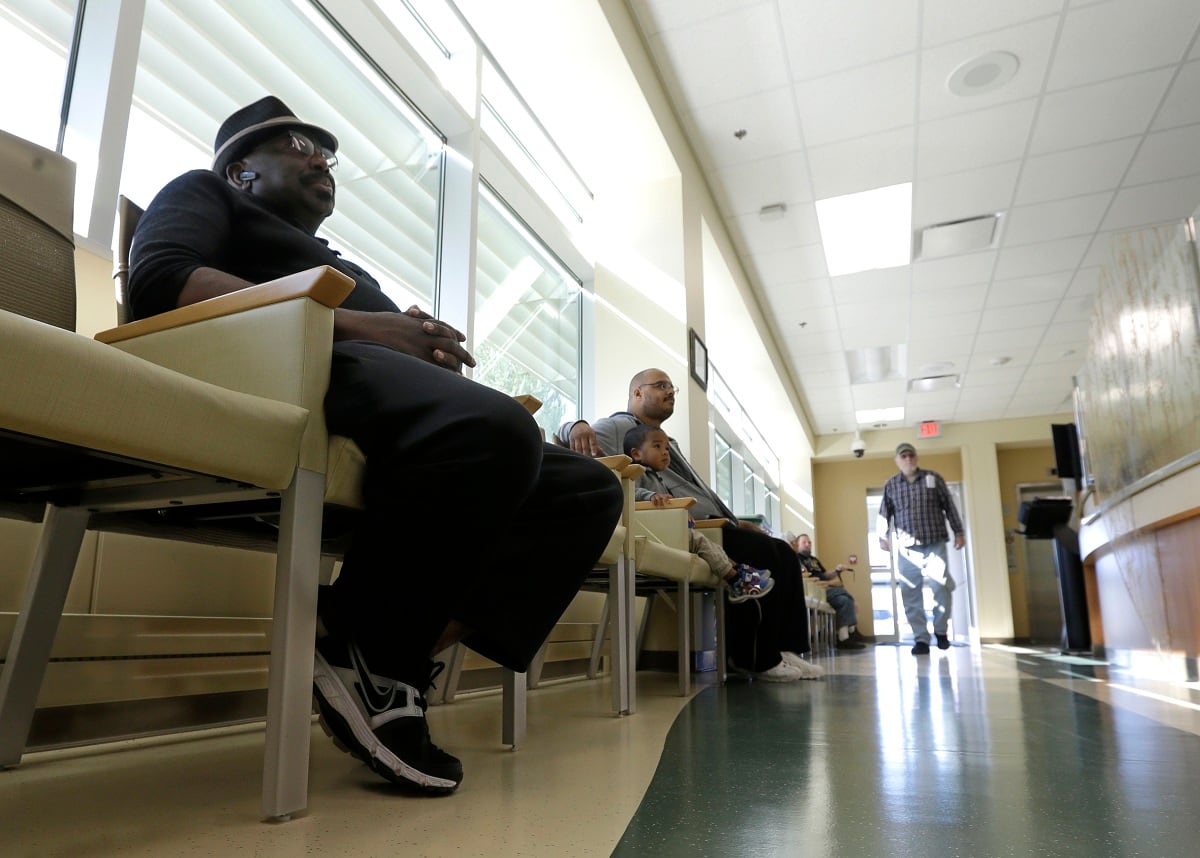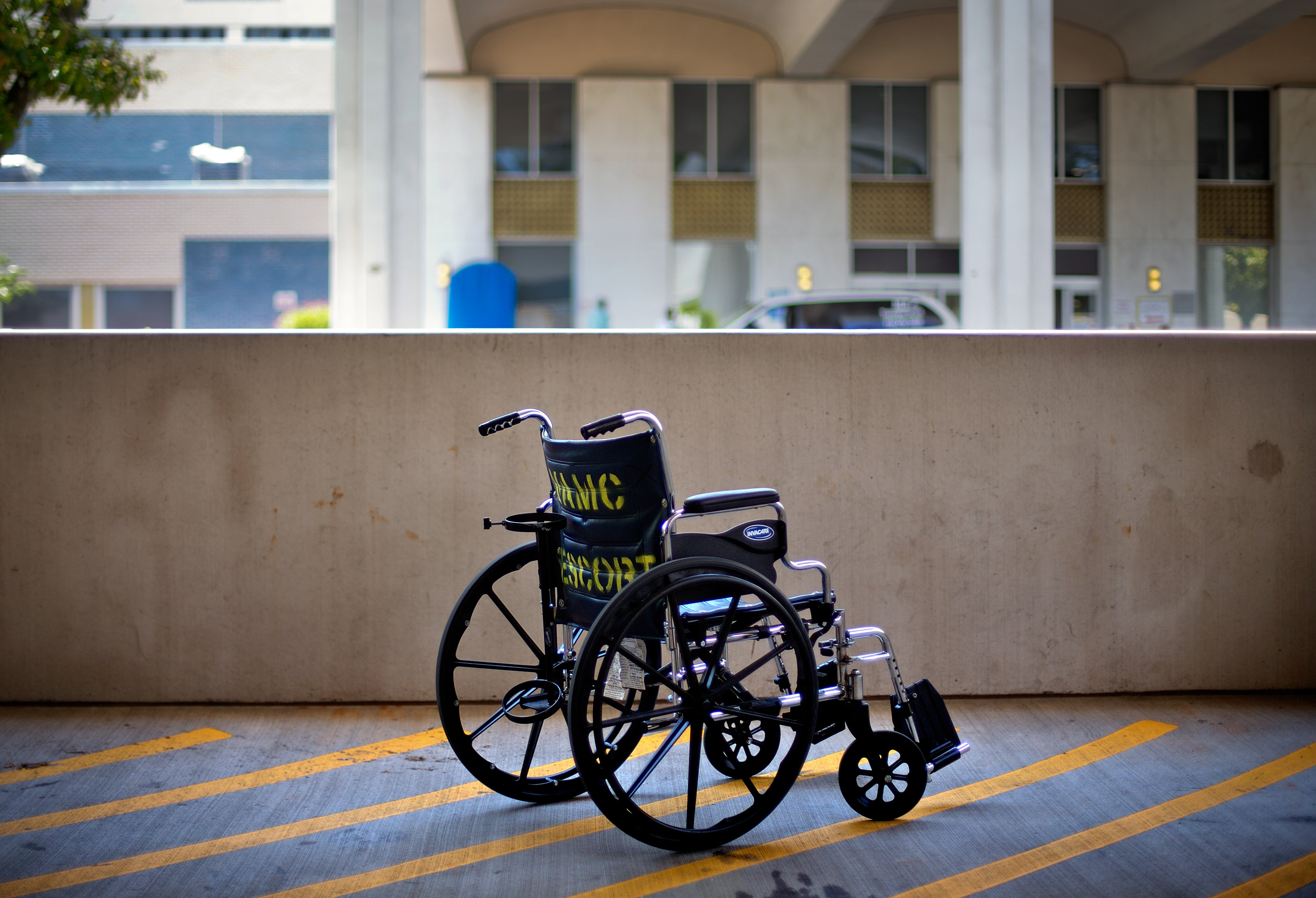President Donald Trump’s pick to oversee veterans’ health care operations wants to see more “balance” in options for medical care, with an eye toward making private-sector appointments more easily available.
The comments from John Bartrum, nominee to be Veterans Affairs Under Secretary for Health, at his confirmation hearing Wednesday afternoon, add a new chapter to the ongoing fight over whether efforts to loosen rules regarding taxpayer-funded medical care for veterans represents more choice for patients or privatization of federal responsibilities.
Bartrum, a former Air Force major general who currently serves as a senior advisor to VA Secretary Doug Collins, said he sees the current rules regarding community care — situations where veterans can see private-sector doctors for their medical needs and have the department cover the costs — as too complicated and preferential towards internal VA care options.
RELATED

“Common sense is that if a doctor and a veteran decide that they need to have a referral to community care, that the referral should occur,” he told lawmakers. “It doesn’t take another doctor or another technician or somebody else to review it.
“We need to balance those care activities for our veterans. There are things that we do that make veterans want to keep coming back and using us over and over, especially if they live within the area where they can get to us. But if they don’t live within that area, they need to be able to use community care without jumping through a thousand hoops.”
Barnum’s comments came as House Veterans’ Affairs Committee members across Capitol Hill advanced legislation which would revise eligibility standards for community care, a move that Republican supporters say would simplify the process for veterans.
But Democratic critics of the Veterans’ ACCESS Act charged the legislation “does little to expand access and veteran choice” and instead “opens the door wider for private-sector providers to cash in on taxpayer-funded care while avoiding the oversight and training standards VA providers must meet.”
Barnum’s assertions at his confirmation hearing were met with similar opposition from Democrats there. Republican senators dismissed the criticism, saying that fears of hollowing out VA medical centers by shifting more resources to community care are overhyped.
Providing more “choice” to veterans was a key focus of Trump during his first term in the White House. In 2018, Congress approved the VA MISSION Act, which overhauled eligibility rules for veterans outside care options, with the goal of providing more private-sector options for patients facing long wait times or significant travel burdens for appointments.
Community care options have risen significantly since then. In fiscal 2017, the department paid for nearly 27 million outside care appointments, roughly 27% of VA total scheduled medical visits. In fiscal 2023, that number grew to almost 47 million, about 39% of the total.
Budget plans for fiscal 2026 call for community care programs to grow to roughly $34 billion in spending, almost four times the total a decade ago.
Despite the increases, conservative groups accused former President Joe Biden’s administration of trying to undermine the outside care options through excessive rules and insufficient communication of patient choices.
Barnum echoed that message on Wednesday.
“When I worked for the VA years ago, we were essentially a single-engine motor,” he said. “We had one cylinder, and it was direct care. We now have community care, referral care. And we need to balance those types of care activities for our veterans.”
Despite Democratic objections, Barnum is likely to be confirmed by the Republican-controlled Senate. The biggest obstacle he faces now in taking over the senior leadership post is timing, since the chamber is scheduled to start its summer break in coming days.
Leo covers Congress, Veterans Affairs and the White House for Military Times. He has covered Washington, D.C. since 2004, focusing on military personnel and veterans policies. His work has earned numerous honors, including a 2009 Polk award, a 2010 National Headliner Award, the IAVA Leadership in Journalism award and the VFW News Media award.





